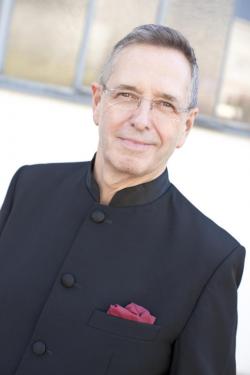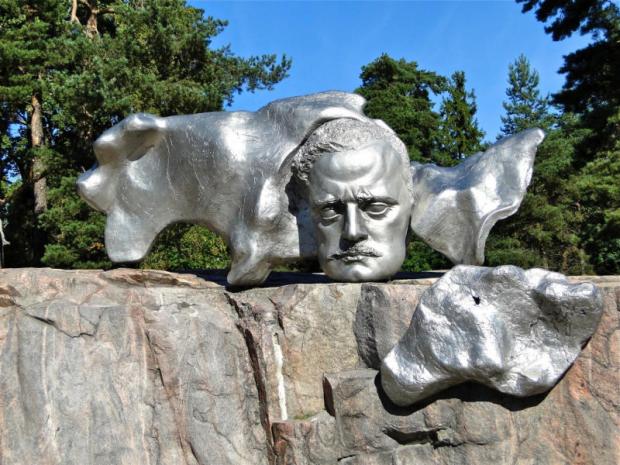The Royal Bangkok Symphony Orchestra (RBSO) under the Royal Patronage of Her Royal Highness Princess Sirivannavari Nariratana continues its bounty of classical music with "Li-Wei Qin Plays Shostakovich", a concert highlighting works by two of the greatest composers of the 20th century -- Dmitri Shostakovich and Jean Sibelius. Dedicated to His Majesty King Maha Vajiralongkorn Bodindradebayavarangkun, the concert which is part of RBSO's "Great Artists Series" programme is set to take place on Friday at the Thailand Cultural Centre.
Shostakovich was one of the few composers to spend most of his life under the Soviet communist system. For much of that time he was forced to live in the shadow of its leader, Joseph Stalin.

Conductor Douglas Bostock.
Shostakovich incurred Stalin's wrath more than once. When his opera Lady Macbeth Of Mtsensk District was first performed, it became hugely popular. Stalin decided he should attend a performance, bringing with him many members of his politburo. He disliked it intensely, believing it to be ideologically impure. Shostakovich was informed, the obvious implication being that he was now being watched and would in future have to toe the party line.
During Stalin's time, artists and musicians enjoyed no special protection. The most famous of the musician exiles were the distinguished cellist Mstislav Rostropovich and his wife Galina Vishnevskaya, the prima donna at Moscow's Bolshoi Opera. Some years later, they would be followed by Shostakovich's conductor son, Maxim, along with his grandson, pianist Dmitri.
It was only after the Stalin's death in 1953 that Shostakovich could breathe a sigh of relief that is mirrored in the greater freedom to be found in his music.
The younger Rostropovich had become friends with Shostakovich. It was therefore natural that the First Cello Concerto was written in 1959 for Rostropovich. Released from the shackles of the state, this was a time of great productivity for the composer.
Considered by many as his finest, the cello concerto is fiendishly difficult to perform, blending powerful musical ideas with many pyrotechnics like double-stopping, harmonics and left-hand pizzicato. The work also features the composer's musical signature DSCH played using the musical notation D, E-flat, C, B-natural. This can be found in many of his works. It is even featured on his gravestone at the famed Novodevichy Cemetery in Moscow, somewhat ironically close to the grave of Stalin's daughter, Svetlana Alliluyeva. Rostropovich performed the concerto with ease after memorising it in its entirety in only four days.
Interpreting the concerto with the RBSO will be celebrated Chinese-Australian cellist Li-Wei Qin. Born in Shanghai, Qin moved to Australia aged 13 before moving to England to study with famed cellist Ralph Kirschbaum. Since commencing his professional career he has performed with many of the world's leading orchestras, including the BBC Symphony Orchestra, the Los Angeles Philharmonic, the London Philharmonic, the Zurich Chamber Orchestra and the Sydney and Melbourne Symphonies. He also appeared at the opening ceremonies of two Olympic Games -- Beijing in 2008 and London in 2012. In 2002 he received the Young Australian of the Year Award.

Bust of Sibelius at the Helsinki Sibelius Memorial. Royal Bangkok Symphony Ochestra
Just as Shostakovich was Russian to his core, so composer Sibelius personifies his native Finland. Throughout his symphonies we hear the sweeping winds blowing through the forests, the sunlight glinting on the lakes, the snow and ice of the Arctic winter.
It is sometimes hard to believe that Sibelius was a relative rarity on concert programmes until after his death in 1957. By then a number of major conductors had started to champion his work, often with entire cycles of the seven symphonies. Now all Sibelius is standard repertoire for a symphony orchestra.
During his early years, Finland was still part of Russia and had been so since the start of that century. Although granted considerable autonomy, a nationalist movement had arisen. Sibelius characterised this nationalist tide with two works, Finlandia, which was to become a virtual national anthem, and the Karelia Suite. Through these he became a national hero.
The Finnish government was so delighted that a major figure in the international music world was emerging from their country that in 1898 he was awarded an annual stipend. Freed from financial worries, he could concentrate full-time on his composing.
Although the Third Symphony In C Major is less often performed than the First, Second and Fifth, it has rightly been called a "beautiful gem". It requires smaller orchestral forces than the mighty Second, with its dark rippling Nordic melody in the finale.

Li-Wei Qin. Photos courtesy of Royal Bangkok Symphony Orchestra
The string writing and the cross rhythms are magical, the beautiful second movement opening with pizzicato on the cellos and basses leading to a quite lovely melody in the clarinets.
The symphony opens with a simple melody for strings which listeners will certainly have heard before. And for movie fans, near the end of the movement there is a section that Howard Shore copied virtually note-for-note when composing the music for the Lord Of The Rings movies.
The RBSO concert opens with Beethoven's rousing Leonore No.3 Overture, Leonore referring to the heroine of his popular opera Fidelio. After the premiere in 1805, Beethoven was unhappy with the original overture and penned several more.
In the concert hall, the others are rarely performed nowadays. With a solemn introduction, Leonore No.3 outlines the main dramatic and musical themes in the opera. These focus on the wife of a political prisoner who has been consigned to the darkest dungeon of a fortress, and her attempts to gain his freedom. In doing so, she disguises herself as a man and gains the trust of the jailer. Able to obtain the keys, she is reunited with her husband before he is finally freed.
The concert will be under the baton of Douglas Bostock who made a return to the RBSO as conductor. Bostock currently has titled positions with orchestras in Switzerland and the Czech Republic as well as being in demand as a guest conductor throughout Europe and Japan where he has worked regularly since the year 2000.
"Li-Wei Qin Plays Shostakovich" will be staged on Friday at 8pm at the Thailand Cultural Centre, Main Hall. Tickets are priced from 400 to 2,000 baht. Contact ThaiTicketmajor at 02-262-3456, RBSO at 02-255-6617/18 or visit thaiticketmajor.com and bangkoksymphony.org for more information.

